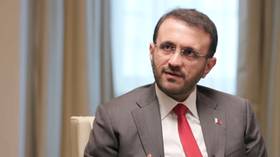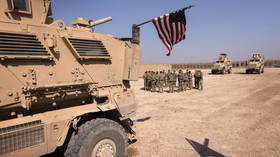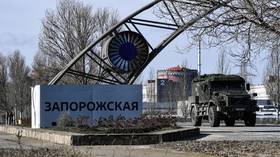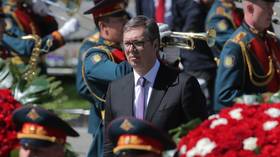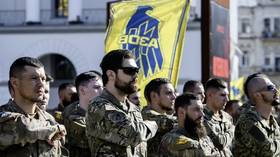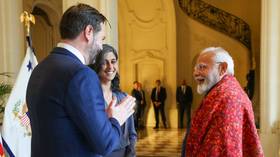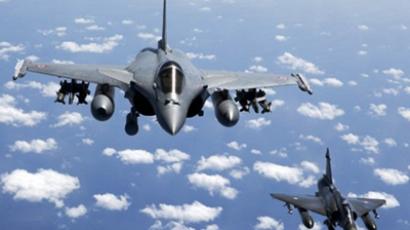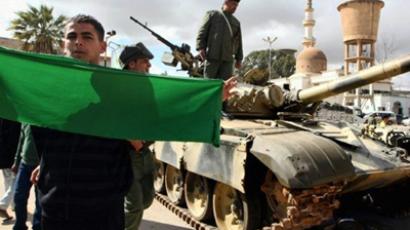Gaddafi rejects rebel calls for ceasefire
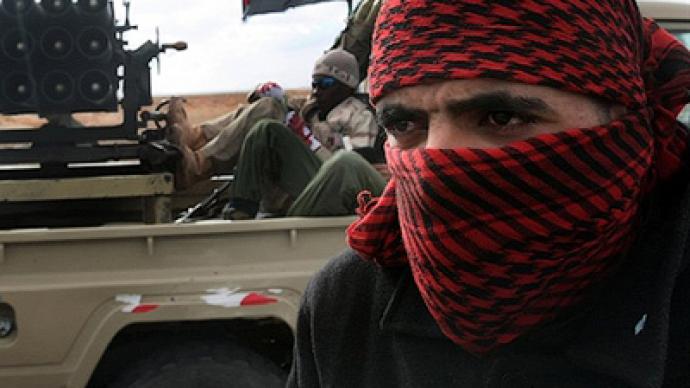
Libya's embattled government has flatly rejected rebel calls for a ceasefire, describing their terms as “mad”. At least 13 opposition fighters are reported to have been killed late on Friday by mistake in an attack by the international coalition.
NATO is investigating the reports that the coalition air force killed rebels. According to witnesses, this happened after one of Gaddafi’s soldiers mixed with the rebel group and fired at the coalition fighter jets the moment they were flying by. The planes bombed the group in response, killing some of them and destroying four of their vehicles.Opposition leaders are demanding the Gaddafi regime withdraws its troops from western cities, stops its offensive in the east and grants freedoms to citizens, while insisting Colonel Gaddafi steps down. They say that if he does not do this, they will fight on and “liberate the country”.Analysts believe Gaddafi will not back down. His troops outnumber the rebels by 10 to 1, and after two weeks of the coalition air strikes, the rebel fighters have been pushed all the way back to the oil town of Brega, and at this stage that is where the fight is centered.According to the latest reports, the rebels are now better organized. They are stopping inexperienced young fighters from reaching the front line, as they have shown themselves to flee in the face of chaos. Also, the rebels reportedly have new communication devices with them in the form of satellite phones and radios, which are believed to have arrived from abroad. They have enough supplies of water and the necessary equipment to continue their fight.At the same time, the fighting seems to have reached a stalemate in the past few days, with neither side having been able to move forwards or backwards. As a result, people in Libya are now increasingly thinking that a political settlement could, possibly, become a solution, RT’s Paula Slier reported from Tripoli.As far as the defections go, the Gaddafi government is making light of the fact that the Foreign Minister Moussa Koussa defected to the United Kingdom. They say that he is an old man who is very sick, and he asked for leave which was granted to him.Moreover, media sources suggest that at least ten top-ranking Libyan officials may flee the country.Mohammed Ismail, a senior aide to Gaddafi's son Saif al-Islam, also visited London for secret talks, apparently on the future of Gaddafi and his family and, perhaps, an exit deal. However, Gaddafi and his representatives have been tight-lipped so far about all of that. Those officials RT managed to talk to denied the rumors.
By approving a no-fly zone operation in Libya, the UN Security Council effectively authorized a war against the country, radio host and author Stephen Lendman told RT.“The UN Charter does not authorize a no-fly zone. The UN Charter does not authorize war, because that is what a no-fly zone does,” he said. “What the Security Council did was basically authorize the three core belligerents – the US, UK and France – to illegally attack a non-belligerent country, so the council violated Article 51 of the UN Charter, which clearly says that no nation may attack another nation, except in self-defense. If another nation attacks the nation, the nation attacked may respond until the Security Council acts, but the Security Council may not act in violation of its own charter.”
The real issue in Libya is not Muammar Gaddafi, but rather the Western countries’ approach to treating their neighbors, argues blogger and anti-war activist Rick Rozoff.“I really do not believe that [Gaddafi] is the issue,” Rozoff declared. “I believe the issue is that the Western powers reserved for themselves the exclusive prerogative of waging war whenever, wherever and under whichever pretext they choose to do so. If he does [step down] under the pressure of several hundreds air sorties flown against his country and several hundred Tomahawk cruise missiles fired from US and British guided-missile destroyers and nuclear submarines in the Mediterranean, it is no great victory for anyone. It simply establishes that when the US and its NATO allies supply overwhelming military force against a targeted nation and government, they can succeed.”





